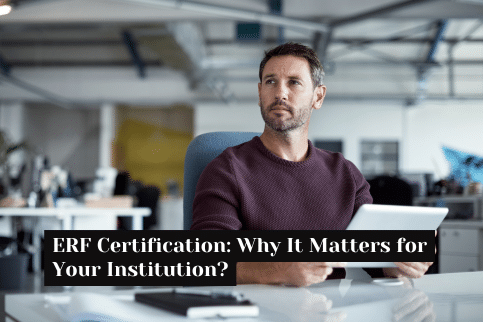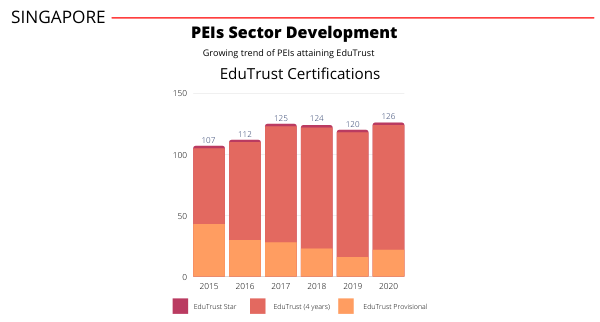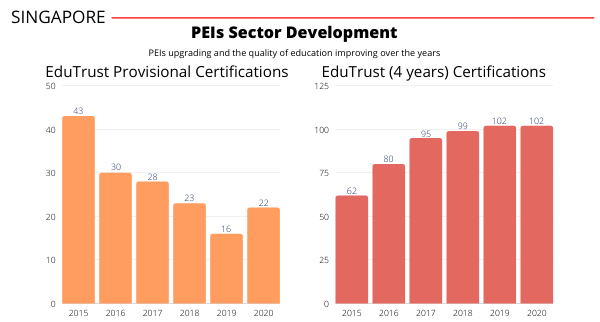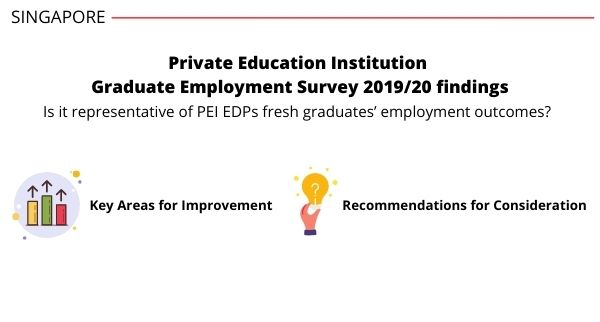What is Enhanced Registration Framework (ERF)?
The Enhanced Registration Framework (ERF), administered by SkillsFuture Singapore (SSG) (Skillsfuture.SG) under the Private Education Act 2009, mandates that all Private Education Institutions (PEIs) meet minimum requirements in governance, academic processes, and operational transparency before they are permitted to operate as a private school. This framework ensures that Private Education Institutions (PEIs) uphold a baseline of quality and accountability, ultimately protecting the interests of students and their families.
Therefore, the Enhanced Registration Framework (ERF) sets the minimum standards that all Private Education Institutions (PEIs) must meet through the mandatory registration requirements.
Why ERF Certification Matters for Private Education Institution (PEIs) in Singapore?
- Legal Operating Licence
Securing ERF registration is not only a legal requirement but also a key credibility marker for prospective students, their families and collaborative partners. Institutions without valid ERF approval risk enforcement actions, including suspension or closure, which can severely damage brand reputation and student trust that ultimately affects recruitment and enrolment figures.
- Quality and Compliance Assurance
ERF-certified institutions signal to students and the market that they meet recognised benchmarks in academic delivery, teacher qualifications, and operational management. This assurance enhances an institution’s reputation for quality, helping it stands out in a crowded education market and attract discerning students seeking reliable, outcomes-driven learning environments.
- Student Safeguards
The ERF requires PEIs to implement transparent financial practices such as Fee Protection Schemes (FPS) and clear refund policies. Transparent policies on fee protection, refunds, and ethical marketing under the ERF framework increases public confidence and brand integrity. Institutions that demonstrate accountability and student-first practices are more likely to enjoy positive word-of-mouth, repeat referrals, and greater success in both local and international student recruitment.
- Credibility and Trust
ERF-certified institutions gain immediate credibility with prospective students, parents, and institutional partners, positioning themselves as trustworthy providers in a highly competitive education landscape. Importantly, a valid and current ERF status is a prerequisite for EduTrust certification, a higher-tier quality assurance scheme. Achieving EduTrust signals a deeper institutional commitment to academic excellence, regulatory compliance, and student wellbeing. It also enables institutions to recruit international students and market their programmes globally, significantly enhancing their reputation, visibility, and attractiveness in both domestic and overseas education markets.
Conclusion
ERF certification is more than a licence or a minimum certification to run a private school in Singapore, it is a public statement that your private education institution prioritises high quality education, ethics, and student outcomes. For PEIs aiming to grow sustainably in Singapore, ERF is the essential first step toward credibility, operational resilience, and long-term success.
Beyond ERF, institutions seeking to enhance their standing through EduTrust certification must demonstrate a deeper commitment to academic governance, student protection, and continuous improvement. Many institutions have turned to experienced education consulting firms such as EduValue, which have played a important role in guiding schools through the complex requirements of both ERF and EduTrust regulations. These firms offer critical expertise in policy alignment, documentation, compliance audits, and strategic planning, helping institutions navigate regulatory expectations with confidence and efficiency.
In today’s highly scrutinised private education landscape, securing both ERF and EduTrust is not just about meeting regulatory checkboxes, it’s about building a strong foundation for trust, visibility, and growth.
Introducing EV Academy: Master Your ERF Compliance
EV Academy supports Private Education Institutions in achieving regulatory excellence. To further aid institutions in navigating the mandatory Enhanced Registration Framework (ERF) set by SkillsFuture Singapore (SSG), we are pleased to introduce our comprehensive online ERF Certificate Program.
This flexible course is designed to equip your staff with the knowledge and strategies needed to effectively meet ERF requirements, maintain compliance, and enhance institutional credibility. Strengthen your institution’s compliance and operate with confidence. Learn more about EV Academy here.
References
SkillsFuture Singapore (SSG). (2024). About EduTrust Certification Scheme. Retrieved from https://www.tpgateway.gov.sg/resources/information-for-private-education-institutions-%28peis%29/edutrust-certification-scheme/about-edutrust-certification-scheme
Immigration & Checkpoints Authority (ICA). (2025). Approved Private Education Institutions. Retrieved from https://www.ica.gov.sg/reside/STP/apply/pei
EduValue Singapore. (n.d.). FAQ – All About EduTrust. Retrieved from https://eduvalue.com.sg/faq-all-about-edutrust/
SkillsFuture Singapore (SSG). (2024). Guide for Choosing a PEI. Retrieved from https://www.skillsfuture.gov.sg/initiatives/mid-career/guide-for-choosing-a-pei
From
Alan Go, Lead Researcher, EV Academy





